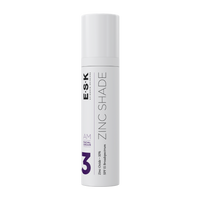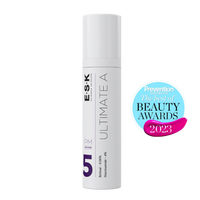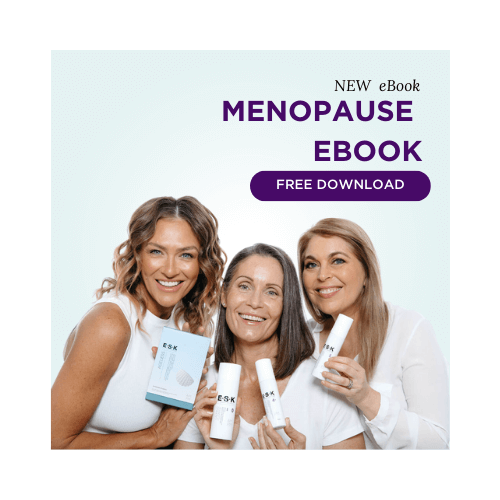
We’re halfway through 2025. June has seen some of the ESK team head to the Gold Coast for the Australasian Society of Aesthetic Plastic Surgeons Non Surgical Symposium. We got to catch up with many of our Australian stockists and I spoke on two topics- both close to my heart- the relationship between hormones and skin. My second talk was on using cosmeceutical skincare in sensitive skin. Traditionally, cosmeceutical skincare has been seen as aggressive on the skin and not an option for people with sensitive skin. That includes rosacea, women in menopause, eczema and people with autoimmune conditions. The reality is that some of THE most effective ingredients- like retinal, PHAs and 4-n-butylresorcinol are also exceptionally well tolerated- even on sensitive skin. As usual, I have also devoured loads of medical journals- and have summarised some of the more interesting articles below;
So… is there a best treatment for acne scars?
Short answer? Not really. But that’s actually a good thing. A new review published in the Journal of Cosmetic Dermatology looking at the latest acne scar treatments (covering studies from the last decade) shows we’re spoilt for choice and there’s something for every kind of scar and skin type.
Let’s back up. Acne scarring affects nearly half of all people who’ve had acne, and it can really knock your confidence. But gone are the days when your only option was aggressive treatments with long downtimes. This review looked at 26 studies and found a buffet of evidence-based options, from gentle to high-tech, that can be tailored to your unique skin.
Tried-and-true methods like chemical peels, microneedling, and laser resurfacing made the list. Newer players like subcision, dermal fillers, cryotherapy, and even stem cell-based therapies, radiofrequency microneedling (RFM) and PRP (platelet-rich plasma) therapy are all gaining serious traction, especially when combined with traditional approaches. For example, microneedling plus PRP, or laser plus filler. The combo strategy, it turns out, often delivers better results than single options.
Each has pros, cons, and specific scar types it works best on. In terms of what’s “best”? The answer lies in you, your skin- including how sensitive it is- your scar type, and your budget. For example, RFM is particularly good for treating acne scars in darker skin types. In terms of peels, there’s always a trade-off between effectiveness and side effects. The way I read it, you are best off not to rely on any single technique- combinations are best! And seeing a dermal therapist who has access to every type of treatment so they can tailor your treatment to your needs.
Acne shows up when your skin responds with inflammation to an excess of the C Acnes bacteria. Excess oil production and an irregular skin cell turnover combine to block pores in the skin creating the conditions where the bacteria flourish. Designing a skincare regimen with this in mind is the first step to helping get your skin under control.
Acne-prone/Oily kit
This kit is designed for oilier, acne-prone skin. Using ingredients with strong scientific evidence, it helps maintain a balanced skin surface, supports an even-looking skin tone, and helps improve appearance and texture. The formulation also supports hydration without feeling heavy or greasy.
The Best Defence Against Post-Inflammatory Hyperpigmentation? Spoiler: It’s Sunscreen.
If you’ve ever dealt with dark spots lingering after a breakout or procedure, or after using skincare that irritates your skin- especially if you have melanin-rich skin- you’re not alone. PIH (post-inflammatory hyperpigmentation) is incredibly common in skin of colour and notoriously hard to prevent. But a new systematic review published in the Australasian Journal of Dermatology has combed through the research to figure out what actually works to stop it before it starts.
Researchers reviewed 14 studies with nearly 370 participants, most of whom had Fitzpatrick Skin Types III to V (medium to deeper skin tones). The most common cause of PIH? Laser treatments, especially on the face! This surprised me because they are advertised as the BEST for all skin types for almost all skin conditions- including pigmentation!
So what helps? Sunscreen stole the show. Whether used on its own or in combo with anti-inflammatory ingredients, it was the only intervention that consistently prevented PIH. In fact, in one study, 98% of people who used sunscreen didn’t get PIH at all.
Other contenders, like topical steroids, growth factors, tranexamic acid, and even cooling devices were mostly meh. Some reduced the severity of PIH, but not the risk of getting it in the first place. And cooling air devices may have actually made things worse.
We’ll say it again; sunscreen is a must, especially before and after dermatologic procedures. Oh and I’ll go back to my talk at NSS- choose skincare that doesn’t irritate!!!
Zinc Shade is a lightweight matte day cream. It also provides broad-spectrum sun protection with an SPF of 15 to provide broad-spectrum protection against UVA and UVB rays. Its non-greasy, matte finish allows for smooth application and works well under makeup. Usage: Apply evenly to all exposed areas of skin before sun exposure. Reapply as needed throughout the day.
Zinc Shade
We spent countless iterations perfecting this lightweight, non-greasy formula to avoid the typical white cast and thick feel of zinc products. The results? A matte finish that works beautifully under makeup. With well tolerated matte finish, it's also well suited to irritable and blemish and bump prone skin.
Key features:
Hormones and Skin Aging – What’s Really Going On?
We’ve always known hormones play a role in how our skin ages, but a new study published in Endocrine Reviews takes things to a whole new level. Think of your skin not just as a passive victim of time and sun, but as an active endocrine organ. Yep, it actually makes its own hormones!
The paper explains how skin aging involves inflammation, DNA damage, and a breakdown of collagen and elastin. One big hormonal player is IGF-1, a hormone produced inside the skin that keeps our skin firm and our stem cells ticking. As we age, especially after menopause, levels drop, and our skin loses its bounce, strength, and ability to repair itself.
Oestrogen in HRT and topical retinoids (like retinal) are two tried-and-true skin helpers already in use. But the review suggests we’re just scratching the surface. Hormones like melatonin, oxytocin, and even one called α-MSH (which helps control pigmentation and inflammation) are showing promise in early studies. We know what they do in a Petri dish but we don’t yet know how to get them into the skin! It looks like they could be the next-gen skin saviours. I’ll be following the studies like a hawk!
Hormones do a lot more than just keep us functioning, they could be the future of smarter, more targeted skincare. The dream? A ‘hormonal toolbox’ to fight skin aging from the outside and inside, without needing a time machine or a filter.
Ultimate A Night Cream contains 0.06% Retinal, the most gentle and effective form of Vitamin A, paired with Niacinamide to help maintain skin barrier function and support brighter, firmer and more even looking skin tone and texture. Well suited even for the most irritable skin. Usage: Apply at night after cleansing (and serum if being used) as part of your evening skincare routine.
Ultimate A
Key features:
See you next month!

